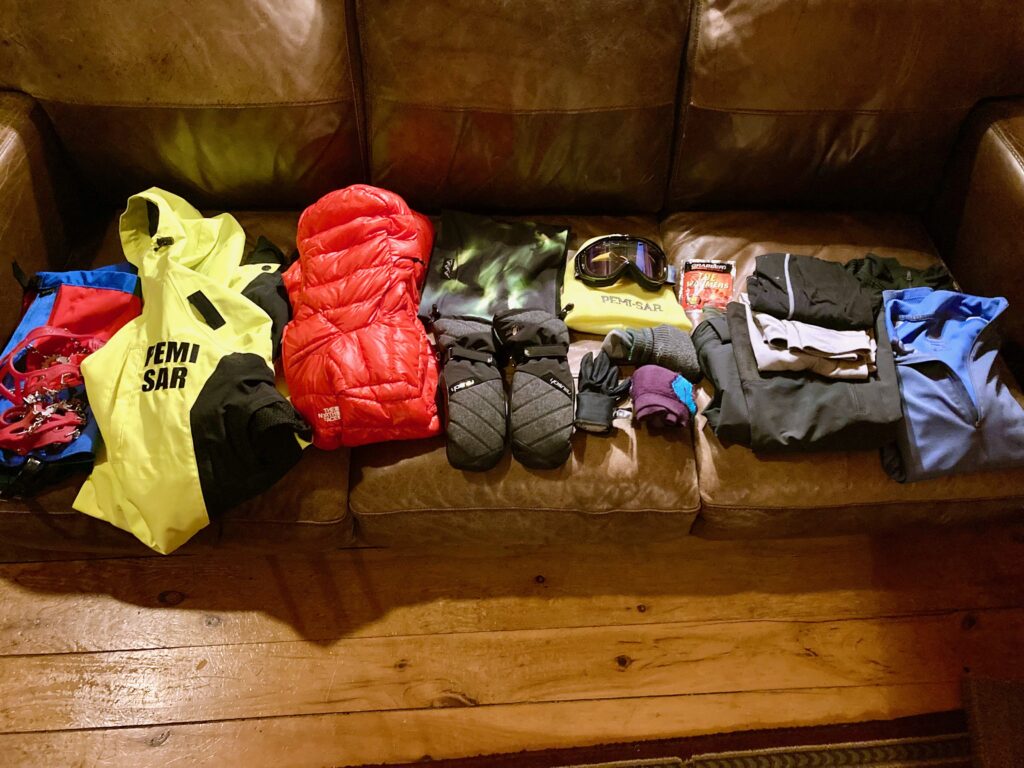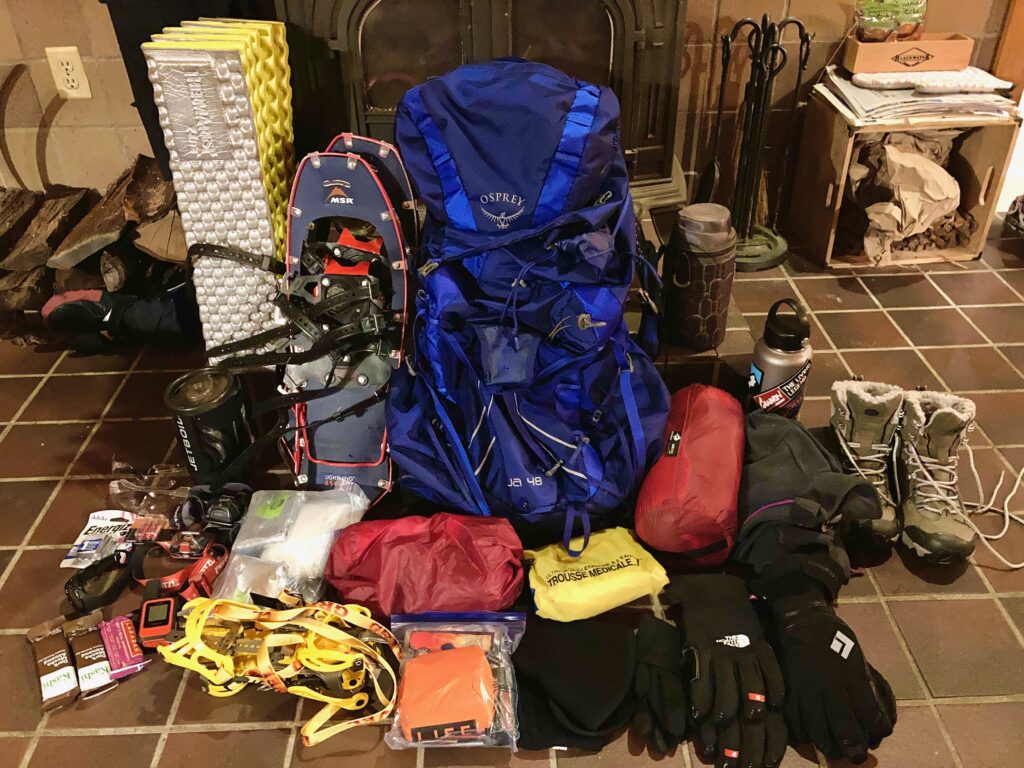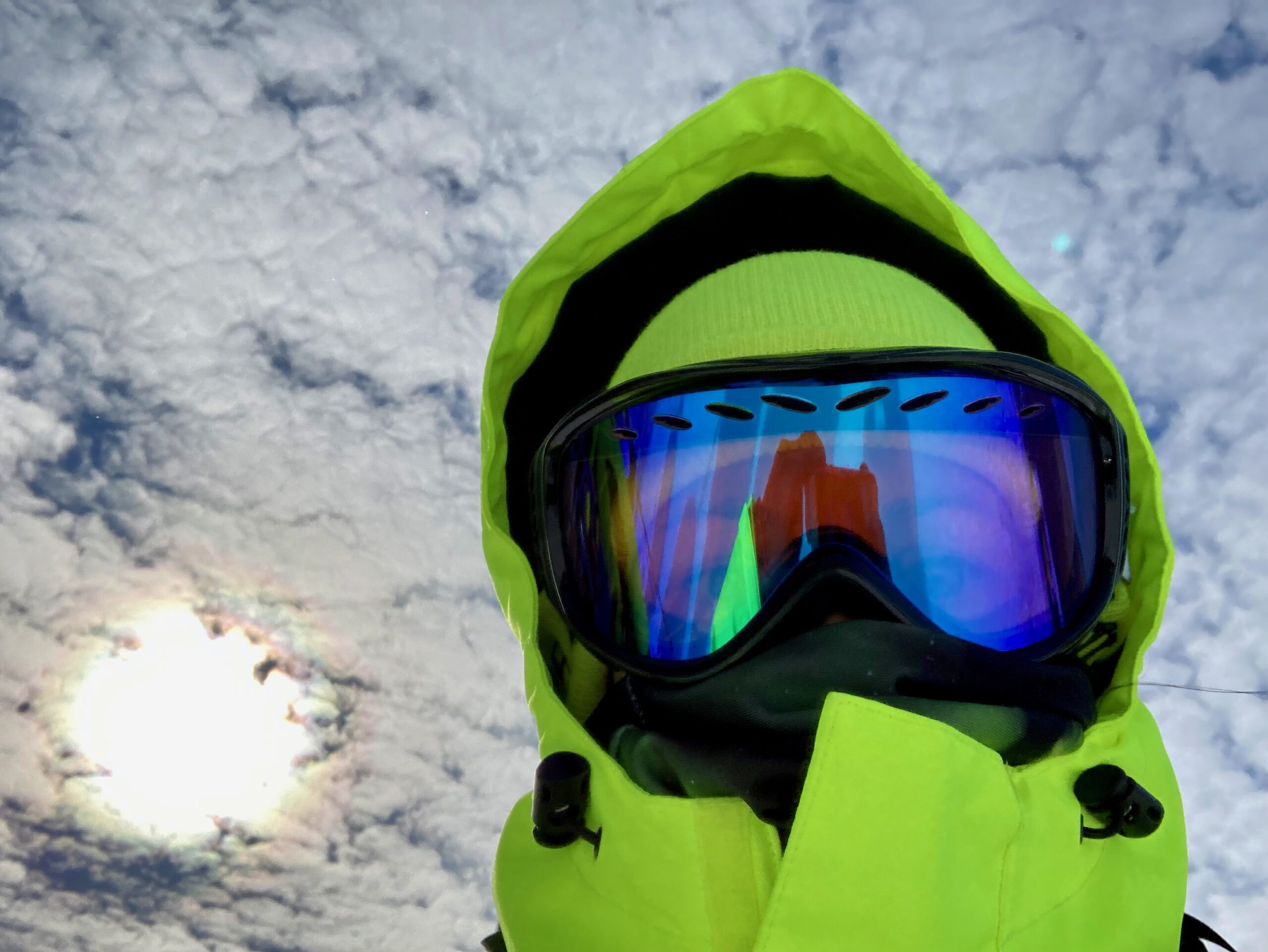What does it take to stay warm for a SAR training in February in the White mountains?

I have to say it made a pretty impressive pile on the floor when I came home and delayered all my layers, but here it all is from right to left (and roughly from the skin out):
- Thermal base layer top
- Insulating quarter zip top
- Two pairs of thermal bottoms
- Soft shell pants
- Ski socks
- Hiking socks
- toe warmers
- glove liners
- puffy mittens
- hand warmers
- fleece lined hat (I’m not sure if it’s a toque or a beanie, but it’s big enough that I can fit all my hair under it)
- ski goggles
- fleece lined neck gaiter
- down insulating layer
- parka
- gaiters
- microspikes
- Winter hiking boots (not pictured)

Another impressive pile. Pack weight ~30 lbs. No, this did not include the stove or the firewood, though both would have been nice at times
- Boots (really belong in the previous picture)
- extra fleece layer
- red stuff sack with extra socks, base layer top, and insulating bottom
- 2 extra pairs of gloves
- 2 extra pairs glove liners
- fleece balaclava
- 1 L thermos
- 1 L Nalgene bottle in insulating sleeve
- Pack
- first aid kit
- red stuff sack with 9 mm cord, webbing, a few carabiners, a few slings
- ziplock bag with extra hand warmers, space blankets, emergency bivvy, matches and fire starter kit
- crampons
- ziplock bag with toilet paper, trowel, wag bags, and hand sanitizer
- snow shoes
- butane stove/pot combo with jello powder
- insulated sleeping pad
- 2 pairs safety glasses
- 3 head lamps
- extra lithium batteries
- altimeter watch
- inReach
- snacks that you can eat without breaking your teeth even when they’ve been frozen solid at single digit temperatures for hours
- Not pictured: car key, ID, credit card, and insurance card. Just in case.

